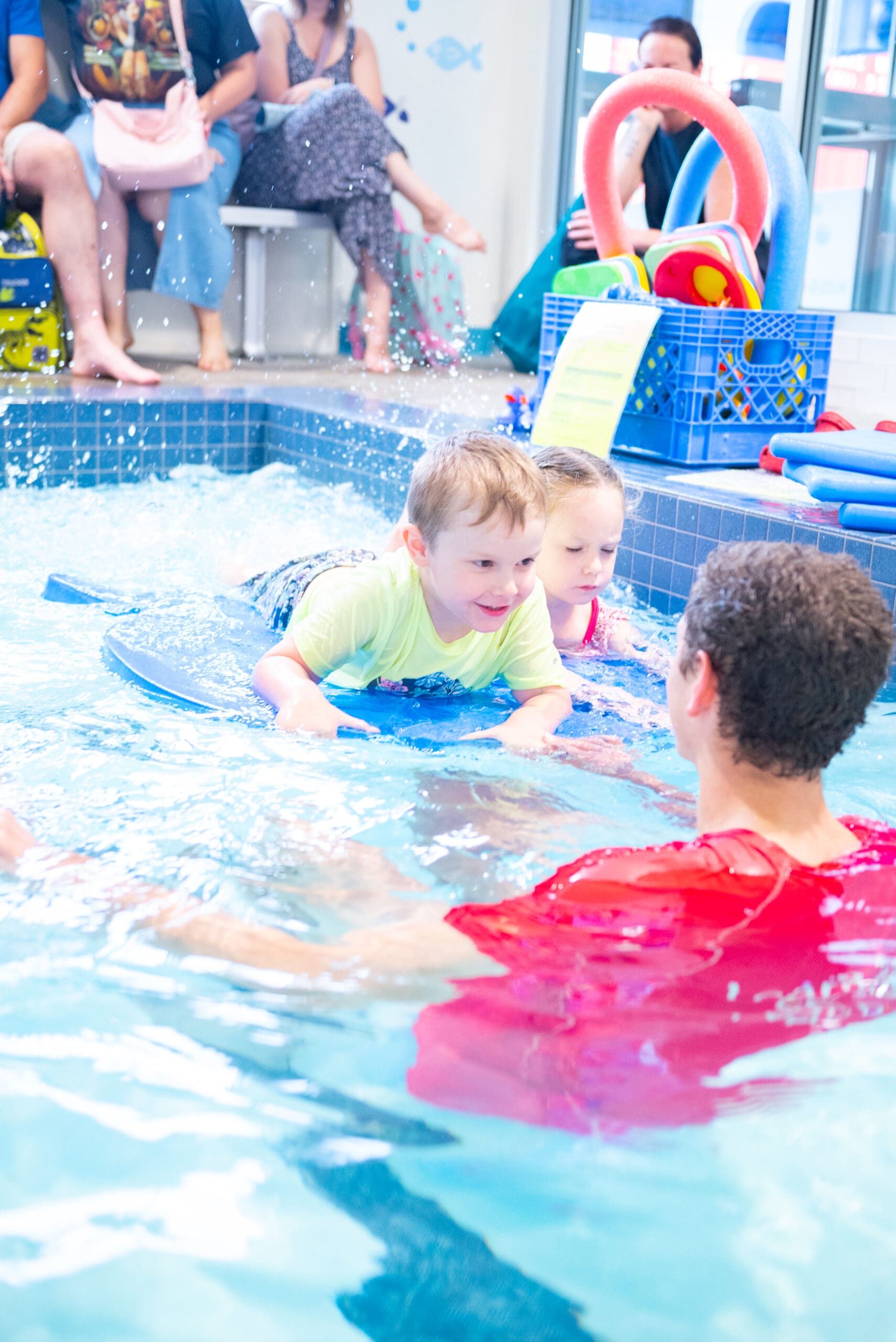
Swim lessons teach more than water safety—they build emotional strength. Discover how the pool helps children develop confidence, independence, and emotional resilience that lasts a lifetime.
More Than Movement
When children show up for their first swim lesson, they’re not just stepping into the water—they’re stepping into a powerful environment for emotional development.
At KidsCanSwim, we’ve seen how swimming becomes a safe space where kids conquer fears, celebrate small wins, and develop the kind of inner strength that goes far beyond strokes and floats. Whether it’s learning to let go of the wall, trying again after a splash of water in the face, or celebrating a new skill, the pool offers countless opportunities to build emotional resilience and maturity.
In this article, we explore how swim lessons support emotional growth—and why that development is just as important as learning to swim.
1. Facing Fears—One Step at a Time
For many children, water can be intimidating at first. Unfamiliar sensations, the sound of splashing, or the thought of going underwater can trigger anxiety. Swim lessons provide a structured, supportive space where children can:
- Express their fears safely
- Learn that fear is normal, not shameful
- Build trust in adults guiding them through the experience
- Develop coping strategies like deep breathing or trying again
With gentle encouragement, these small challenges turn into triumphs. Children begin to see that they can face fears—and that doing so helps them grow braver over time.
2. Celebrating Effort Over Perfection
One of the core values we teach at KidsCanSwim is that progress is more important than perfection. Every child learns at a different pace—and every small success deserves celebration.
When a child finally:
- Floats without support
- Jumps in without fear
- Swims to the wall alone
…they’re not just improving physically. They’re learning that effort leads to success and that their hard work matters.
This builds healthy self-esteem, where children feel proud of what their body and mind can achieve—no matter how fast they reach each milestone.
3. Building Trust and Independence
Swimming encourages children to trust themselves—and that’s a big deal. In the pool, there’s no pretending. You can’t fake a float or a breath-hold. You have to trust your body, your instincts, and the instructions you’ve been given.
Over time, children who swim regularly begin to:
- Rely less on adults for reassurance
- Make small decisions independently
- Learn to read and respond to their environment
- Gain confidence in their ability to manage their own safety
That trust becomes the basis for healthy independence, allowing children to approach new challenges—both in and out of the water—with a strong sense of self.
5. The Emotional Payoff: A Confident, Capable Child
By the end of a swim session, parents often see their child standing a little taller, walking with more purpose, or glowing with pride after class. These are the signs of emotional growth in action.
Children who swim regularly tend to:
- Manage new situations with less anxiety
- Build strong self-identities
- Bounce back from frustration
- Trust their ability to learn new things
- Carry emotional confidence into school, friendships, and other activities
Swimming doesn’t just shape strong bodies—it shapes resilient, emotionally intelligent minds.
The pool is more than a place to stay safe—it’s a place where children learn to face challenges, believe in themselves, and celebrate the journey of becoming stronger inside and out.
At KidsCanSwim, we believe that emotional development is just as important as physical or cognitive milestones. That’s why every lesson is designed to nurture the whole child, offering emotional encouragement, positive role models, and a space to grow with confidence.
